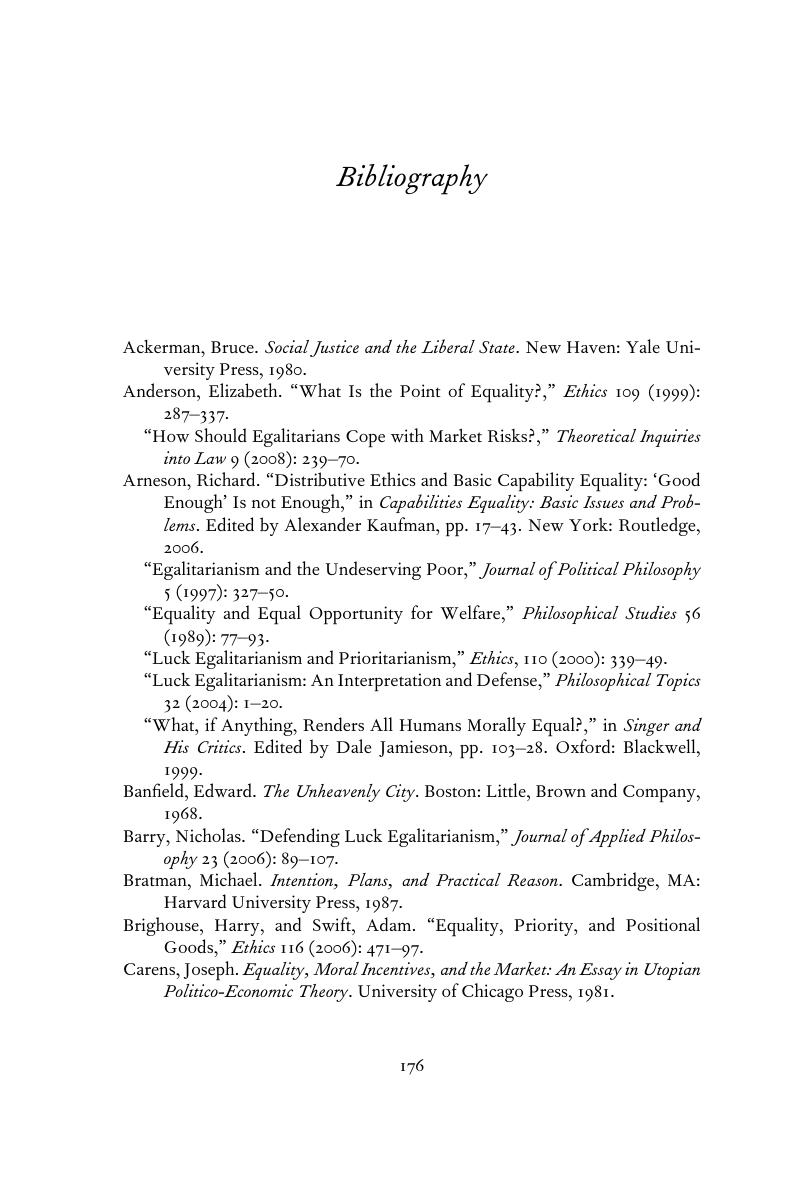Book contents
- Frontmatter
- Contents
- Preface
- Chapter 1 Reconciling equality and choice
- Chapter 2 Luck as the absence of control
- Chapter 3 Equality, responsibility, desert
- Chapter 4 The monistic turn
- Chapter 5 Why we are moral equals
- Chapter 6 Completing the turn
- Chapter 7 Coping with contingency
- Chapter 8 Enough is enough
- Chapter 9 From sufficiency to equality
- Bibliography
- Index
- References
Bibliography
Published online by Cambridge University Press: 05 August 2014
- Frontmatter
- Contents
- Preface
- Chapter 1 Reconciling equality and choice
- Chapter 2 Luck as the absence of control
- Chapter 3 Equality, responsibility, desert
- Chapter 4 The monistic turn
- Chapter 5 Why we are moral equals
- Chapter 6 Completing the turn
- Chapter 7 Coping with contingency
- Chapter 8 Enough is enough
- Chapter 9 From sufficiency to equality
- Bibliography
- Index
- References
Summary

- Type
- Chapter
- Information
- Equality for Inegalitarians , pp. 176 - 180Publisher: Cambridge University PressPrint publication year: 2014



